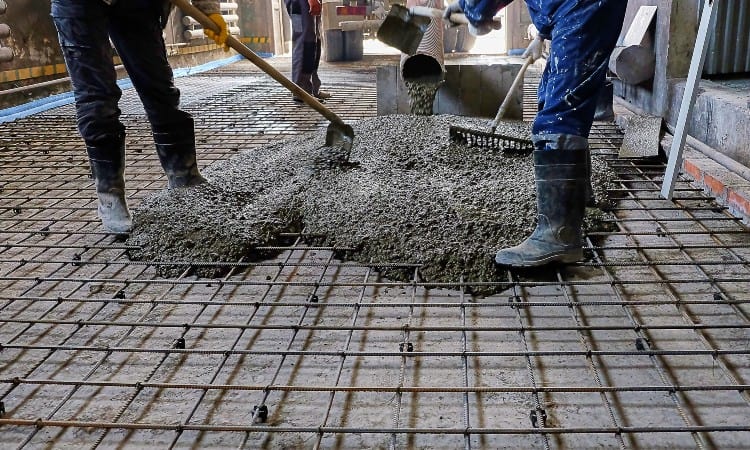Reinforced Concrete Floors

Concrete floor slabs have become a standard in modern office and residential blocks as well as multi-storey car parks, thanks to their impressive compressive and tensile strength, making them able to withstand both intense pressure as well as years of wear and tear.
Rebar is an integral component of concrete, helping it withstand high levels of pressure while remaining corrosion resistant and fireproof. Rebar can even be customized to be fire resistant!
Strength
Concrete slabs Melbourne is an adaptable construction material with many potential applications, from heavy loads and chemical exposure, extreme temperatures, and other environmental elements to providing smooth surfaces with regular aesthetics. Concrete warehouse floors must meet these stringent criteria in order to be suitable for commercial warehouse designs.
Reinforced concrete provides a solution to these challenges by adding steel rods, bars or mesh to the mix as reinforcement material. This makes the concrete stronger against lateral forces and gives additional tensile strength from this form of reinforcement.
Concrete floors are most often constructed on-site from a wet mix of cement, rock fragments, gravel fragments and sand fragments poured over steel mesh or rebar reinforcement that forms an overlapping square pattern. This form of construction requires full strength development before occupancy can commence – however precast panels can also be manufactured and cured in factories before delivery to site.
Durability
Steel mesh reinforcement Brisbane in your concrete floors helps decrease the chance of potential crack development, and reduce the time it takes for concrete flooring to set.
Though concrete is exceptionally strong in compression, its tension strength can be weak, rendering it structurally unsound without reinforcement. Engineering specialists increase its tensile strength by embedding steel rods or mesh into plain concrete to absorb any stress instead of being absorbed by it directly.
Steel reinforcement provides a more forgiving surface that’s quick and easy to install, helping ensure employees’ health and safety in a warehouse setting. Imperfections or bumps that cause trip hazards or depressions that collect liquid can pose health and safety threats for employees working there. Imperfections or bumps could create trip hazards while depressions collect liquid that collects. Using hard concrete surfaces may hurt those who fall on them while its hard surface could crack items dropped on it – steel reinforcement reduces these issues by providing a more forgiving surface that makes for quicker installations as well.
Cost
Concrete is an extremely cost-effective construction material due to its ease of use and wide availability. Molding it to fit various applications provides a strong foundation for structures. Furthermore, its highly durable nature resists corrosion – but concrete may crack under pressure and extreme temperatures if left without reinforcements to strengthen it further.
Steel reinforcement can be added to concrete to increase its tensile strength, either incorporated directly into it while it sets or added later. Steel is an extremely flexible material and can be used in various applications; additionally, its temperature-responsive nature means that damage does not easily occur with this form of reinforcement.
Uneven warehouse floors present serious health and safety risks to both pedestrians and vehicles alike, posing trips and falls to pedestrians while collecting liquid that poses slip risk for vehicles. Reinforced concrete provides an effective solution that is strong enough to support heavy loads while resisting extreme weather conditions – creating sturdy warehouse floors capable of withstanding extreme loads and climate conditions.
Versatility
Reinforced concrete floors are an increasingly popular choice in industrial environments due to their strength and durability. Furthermore, rebar reinforced floors are an economical alternative to other flooring materials like wood and vinyl and feature smooth surfaces that resist mold and mildew with easy sweeping or mopping capabilities – plus fast installation speeds!
Concrete reinforced with steel reinforcement is a type of construction material used to strengthen structures that must withstand significant pressure and strain, such as roads and multi-story buildings. Steel reinforcement is added before hardening so the structure has both high compressive strength and good tensile strength properties.
Cement and Concrete Association (C&CA) offers several resources for engineers, architects and contractors who work with concrete. One such resource is the Concrete Reinforcing Steel Institute’s Manual of Standard Practice which contains standards regarding estimates, detailing, fabrication and placement of reinforcing steel.
